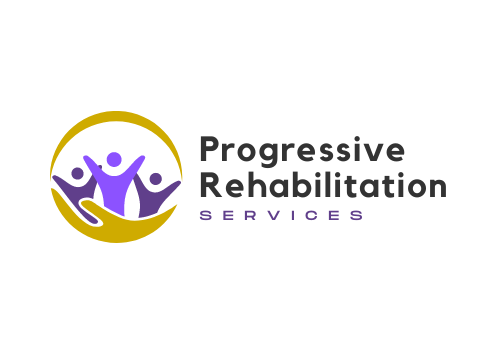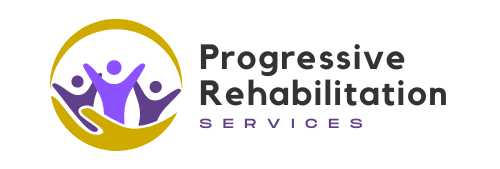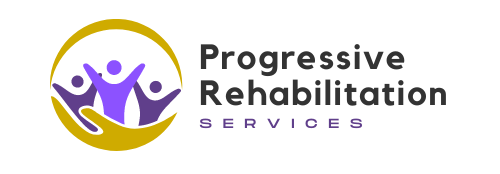Work Readiness
Work Readiness Services
Work Readiness Services are those services related to disability issues, interpersonal skills training, daily living skills, and issues that interfere with obtaining or maintaining employment. Work Readiness Services benefits customers who have never worked, have not worked for a long time, or have a sporadic work history, and it prepares customers for successful employment so that they can manage or address vocational impairments and be self-sufficient.
Vocational-Adjustment Training (VAT)
VAT is designed to help a customer learn skills to assist them to become work and job ready. Our role is to provide support and training to increase this may include disability awareness and generalized classroom lessons in which students learn about their rights, their responsibilities, and how to request accommodations, services, and other forms of support needed during the transition from
secondary to postsecondary education and employment. the customers’ skills to prepare successfully for long-term employment.
VAT services, offered in both classroom-style and community-based instruction, help a customer identify and learn skills that will support their daily workplace routine. VAT services prepare customers for successful employment by identifying individual needs and addressing soft skills development, self-advocacy, transportation needs, exploring job preferences and/or transferable skills. VAT services may also explore budgeting and managing wage earnings to build the customer’s knowledge and confidence to live independently and interact with financial institutions. The services allow a customer to develop the competencies and essential skills necessary to function successfully on the job and in the community, so they can be as self-sufficient as possible. This service is comprised of 8 components.
1.
1.
Explore the "You" in Work
(10 hrs)
Assist the student to learn about and understand 4 key training topics: work personality, interests, values and transferable skills.
2.
2.
Soft Skills Training
(20 hrs)
Introduces youth to the workplace interpersonal and professional skills that focus on six key skills areas: communication, enthusiasm and attitude, teamwork, networking, problem solving and critical thinking, and professionalism.
3.
3.
Entering the World of Work
(10 hrs)
The purpose of this training is to provide information
to students to help them gain knowledge and skills related to workplace expectations, rules and laws. This training will focus on essential skills needed to successfully enter the world of
work and understand the expectations of employers.
4.
4.
Job Search Training
(20 hrs)
The purpose of this training is to provide the student with the
opportunity to gain the skills necessary to obtain employment in entry-level positions. This training will focus on facilitating training to assist the student in developing skills essential for
preparing for a job search, such as completing job applications, resumes, and interviews.
5.
5.
Disability Disclosure Training
(20 hrs)
The purpose of this training is to provide information to students to help them make informed decisions about disclosing their disability. It is important to note this training is not designed to tell the consumer how or when he or she should disclose his or her disability, but rather to assist the consumer to determine what he or she would like to disclose and how that decision impacts their life.
6.
6.
Exploring Postsecondary Education and Training
(10 hrs)
The purpose of this training is to help customers understand postsecondary education, financial aid, and the services that are available to support students in postsecondary education and training.
7.
7.
Money Smart
(30 hrs)
Assist the student to learn about and understand 4 key training topics: work personality, interests, values and transferable skills.
8.
8.
Public Transportation Training
The purpose of this training is to assist the student to gain
basic travel skills. The curriculum focuses on developing the skills essential for travel in the student’s community using public transportation.
Work Readiness
Within the parameters of the VAT we can design the workshops to fit the needs of the students whether short-term or long-term. The entire program can run anywhere from 10 to 15 weeks, 8 to 10hrs/week (120 clock hours) during the school year and requires us to meet with the students 2 to 3 times per week to facilitate the workshops. However; to meet the needs of the students any of the 7 components can be provided alone or in combination with the other components. A short-term internship or work experience during the summer is typically the outcome that is expected at the completion of the program for most participants.
About Our Company
Progressive Rehabilitation Services is a community-based organization that provides pre-employment skills development, employment opportunities, coaching, and consulting services.
Site Links
Contact Information
10101 Fondren Rd, Houston, TX 77096, United States of America Suite 102
Email: tdavenport@prscareers.net
Phone: (346)757-4458
Hours
- Mon - Fri
- -
- Sat - Sun
- Closed
All Rights Reserved | Progressive Rehabilitation Services | Created by ZING.work



